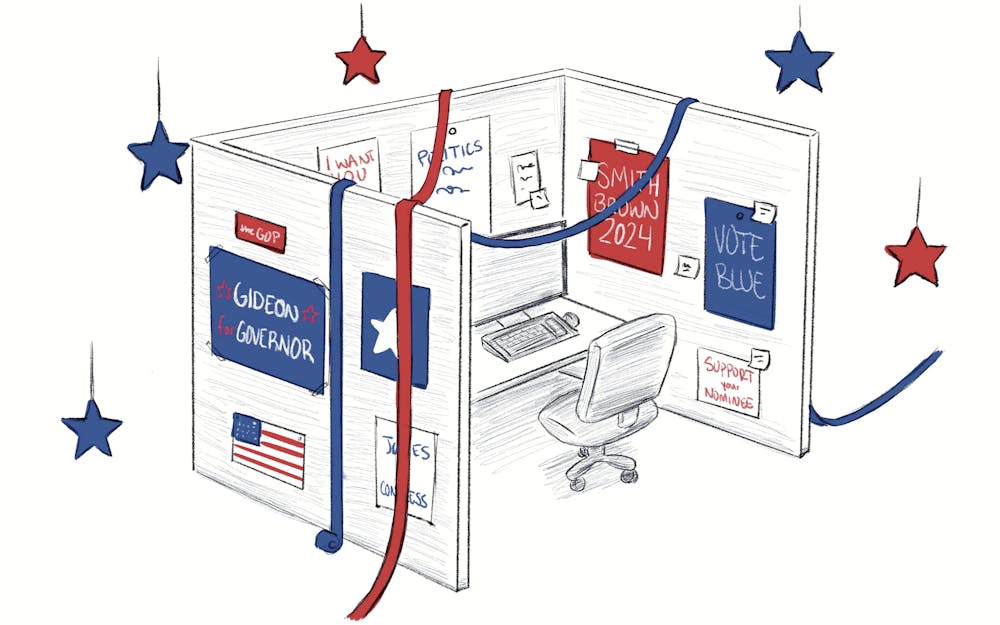You may have recently heard buzz about PFAS — perfluoroalkyl and polyfluoroalkyl substances otherwise known as “forever chemicals” that contaminate everything from our water supply to food containers to clothing and have long-term health effects.
Or perhaps you’ve kept up with the fact that some Amazon delivery drivers felt pressured to urinate into plastic bottles in order to meet their delivery quotas for the day. What do these things have in common? Our government can and does step in to regulate industries to protect the public from dangerous substances in places they shouldn’t be or harmful business practices that violate our health and wellbeing.
The Chevron Deference, originating from Chevron U.S.A v Natural Resources Defense Council in 1984, gave federal agencies the power to interpret ambiguously worded legislation in the process of implementing and enforcing policy. Some might argue that nearly every piece of legislation is ambiguously worded and could be subject to many interpretations, it just depends on who that person or organization is — agencies, states, courts or, perhaps, private corporations.
However, after the U.S. Supreme Court’s Loper Bright Enterprises v. Raimondo decision made this past June, the power to interpret legislation will go straight to the federal courts. This case brought up a significant question of if the Chevron Deference should remain in place after a group of fishermen felt they were unfairly required to pay for monitoring requirements. The Supreme Court, in a 6-2 decision written by Chief Justice Roberts, argued that deference to agencies undermined the court’s power of judicial review — or the ability to deem legislative and executive acts unconstitutional.
It is worth noting, however, that the power of judicial review was not written into the Constitution. Rather, the Supreme Court granted itself the power in 1803 through Marbury v. Madison.
The tossing of the Chevron Deference opens up an opportunity for highly regulated industries to more fiercely challenge those regulations that stifle their profit-making abilities. Unfortunately, these same regulations are the ones that protect the environment, our public health and our livelihood.
The courts, however valuable to our American government system they are, do not have technical policy expertise — agencies do. The U.S. Environmental Protection Agency, for example, employs experts, including engineers, chemists, biologists, lawyers and economists to help carry out rulemaking, law enforcement against corporations and compliance measurement for states.
Some Republican politicians, such as Vivek Ramaswamy — former presidential candidate and the owner of pharmaceutical company Roivant Sciences, have advocated for the abolition of several federal agencies entirely and made calls to drastically cut the federal workforce. Ramaswamy and those with similar beliefs feel that our bureaucracy is part of a wasteful administrative state that they would label as a fourth branch of government — one that our founding fathers may not have initially envisioned.
This so-called fourth branch of government is essential to protecting the American people. These agencies are largely comprised of technical experts with advanced degrees, specific training and education to most effectively implement our public policy.
Without them, we leave the policy process up to elected legislators and federal judges, some of whom have little political or policy related educational backgrounds, or otherwise simply do not have the time or bandwidth to be experts on the small details of certain regulations in fields like environment, energy or health. They are not unqualified or otherwise not important because of these characteristics, however they simply serve a different function in government and to their constituents.
The EPA mission is “to protect human health and the environment.” Many federal career employees come to these agencies with a desire to serve the public with missions like that one — not chasing after high salaries or the promise of power.
Some people bring forth the argument that bureaucrats are not elected and therefore have little motivation to truly serve the American people, but neither are federal judges — they are appointed by the President. On top of that, many federal employees spend years or decades working for the government, through multiple presidential administrations of different parties, demonstrating a commitment to serving the public in a nonpartisan manner.
American bureaucracy was designed to leverage the skills of hardworking, educated Americans in a meritocratic system — giving subject matter experts the ability to help interpret and roll out legislation meant to benefit the public. Now the judicial system has the jurisdiction to handle all questions of legislative wording.
Beyond simply not having the necessary knowledge to make informed rulings on niche policy topics, these judges may hold certain political ideologies that influence their decisions and open the door to actors without the public’s interest at heart.
As we approach the 2024 presidential election, in addition to various state and local elections, we must consider what the uprooting of our bureaucracy could mean for protections and services we take for granted.
Leila Faraday (she/her) is a junior studying policy analysis with minors in geography and urban planning.






